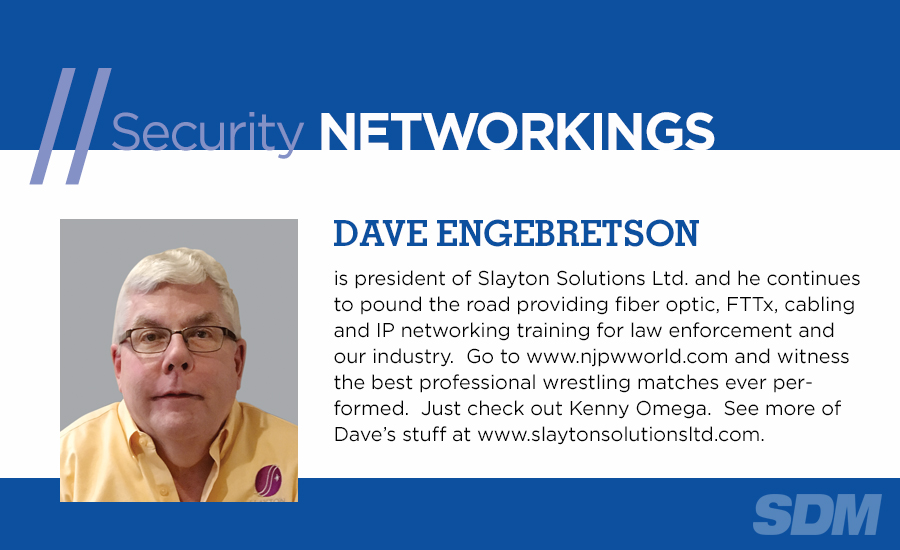Security Networkings
Securing Doorbell Cameras Is a Must
CYBERSECURITY

It seems that every night that I watch the local news there is a story that includes a video clip from a DIY outdoor camera. Whether it’s a drive-off at a gas station, a package thief, or someone stealing front yard displays, the doorbell camera certainly illuminates and magnifies the moral failings of some in our society.
As people continue to avoid public places and stay home, outdoor video motion detection is becoming an accepted physical security element for many homeowners and businesses. There are underlying issues that many of our customers are not addressing.
The baked-in security problems for these low-cost video IP devices are well documented. Because they are connected to the internet to transmit their video images to cloud storage and many of these cameras have no limit on the number of sign-on attempts, “brute force” attacks where the device is bombarded with common passwords until one works is a typical hacking method. While the vendors strain to inform users to create strong passwords, people will generally take the easy way until they find they have installed an intruder in their living room.
These easily hacked IP cameras can also be lassoed and turned into “robots” that will respond to remote commands. The security problems of large botnets continue to grow, particularly with many people working from home. In many cases work-at-home internet connections can allow those hackers who have taken over a device on the network to then access companies’ servers and main networks.
These security problems have initiated federal lawsuits against major manufacturers and vendors, citing negligence, invasion of privacy, breach of implied contract, breach of implied warranty and unjust enrichment. As the suppliers of these devices these deep-pocket companies are ripe targets for lawsuits.
Low voltage contractors should install quality IP cameras and devices, programming all available security options, and inform clients of their need to protect their passwords from being hacked. Also, smart companies will review their standard contract that is used with their customers to ensure the installing company has minimal exposure to legal action or financial losses if and when an IP device or system is hacked.
Looking for a reprint of this article?
From high-res PDFs to custom plaques, order your copy today!






